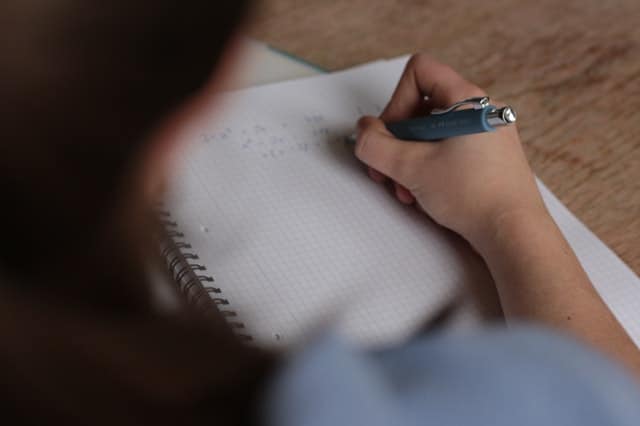
Do you hear people talk about their intentions in English?
Does it seem like you hear the words intent and intention used in very similar ways?
This is one of those things in English that even natives may not necessarily understand.
We’re going to look at these two nouns, how you might use each one, and if there is a time or place to use either in conversation.
Get Your Transcripts Today!

Make sure you understand every word you hear on All Ears English.
Bring your English to the advanced level with new vocabulary and natural expressions.
Subscribe and get the transcripts delivered by email.
Learn to speak naturally with the American accent.
We have a great question about the two words intent and intention.
Hi Jessica and Michelle!
I’m having trouble with something, and I’m hoping that you can help me with it. I noticed that you use both “intent” and “intention” in your podcast. Could you describe the difference between them? (cut out the rest)
Is there a way to use each one properly? I’m a bit confused on this, and could use some help.
Thank you,
Wei-Cherng Kuo
Breaking This Down
When you see this pointed out, you can see where this may be a bit odd or confusing.
When you really think about it, why do we have two separate nouns?
So intent and intention are both nouns of intend, which is to say to have a plan or a goal to do something.
You might say something like “I intend to go shopping later, but let’s see if it actually happens.”
So let’s put that into these two noun forms to compare and contrast.
Using intention: “It is my intention to go shopping later, but let’s see if it actually happens.”
Using intent: “It is my intent to go shopping later, but let’s see if it actually happens.”
Is there a difference?
Does one sound better than the other one?
Think about this as you weigh out the differences and which fits in certain conversations.
Comparing The Two
For starters, intention is only a noun and intent is also an adjective.
That’s not the focus today, but it’s worth noting for point of reference.
For purposes of comparing the two here, we are looking at them both as nouns.
So let’s look through the various comparisons here for further clarification.
- These two words are used in almost exactly the same way. Usually it doesn’t matter which one you use because they are often used interchangeably.
- If you do research on this, it seems that intent is more formal in nature. The plan is more of a real and serious plan than intention. There is somehow more intensity or focus when it comes to intent.
- Intention is not as strong as intent. It is a bit looser and more informal in nature. Intent is also used more as a legal term, particularly in documentation.
- Practice using them and you will see what feels more natural. There are times where one may stand out over another. It may just come down to personal preference though.
Comparisons are always a great way to decide which option is best.
Sometimes it’s just a matter of using each in conversation to see which fits better.
Examples To Show The Right Fit
You want to see some examples of each in conversation to help you to decide.
Though the two may be used interchangeably, examples can help to highlight times where one stands out over another.
A few examples to show the two include:
- Intent:”It was her intent to steal money from the bank, but they caught her.”
- Intention: “I had every intention of calling you, but then I lost my phone. So sorry!”
Either/Interchangeable: “If it’s your intention/intent to buy men an expensive gift, please don’t. I would rather we save the money!”
As you can see, this comes down to personal preference because they can be used interchangeably.
Other Ways of Talking About It
There are other ways of talking about intent or intention, and this is important to focus on as well.
You may also use the phrase of “I had every intention of ……..-ing.”
You might say something like “I had every intention of meeting you there, but you left before I even got out of the office.”
You may also talk about having good intentions, which means that you were really trying to and planning to do something.
You might say “I know she didn’t do so well, but she had good intentions. Can you give her a break?”
Basically, the idea is that they are almost the same, and therefore both can be used easily in conversation.
There are some slight grammatical differences that may pop up, but this is a good starting point.
Native speakers don’t really know the difference and would struggle to figure it out.
The difference is incredibly slight so focus on what you hear others say around you.
Practice using each in conversation and you will find what works best for you.
Roleplay To Help
Since the differences are quite subtle, a roleplay can be very helpful here.
In this roleplay, Lindsay is talking to the police about a robbery that was just witnessed.
Lindsay says: “So that’s what happened.”
Michelle says: “Miss. Are you sure it was the suspect’s intent to knock the woman over? Or was he just running away.”
Lindsay: “I don’t know. I wasn’t really paying attention, but I saw it happen. I can’t say.”
Michelle: “And what were you doing in the area?”
Lindsay: “Well it was my intention to buy a gift for my little sister, but then this happened.”
Michelle: “Okay thank you for the information.”
You can see how the two are used interchangeably and they both work in most cases.
Takeaway
When you have two similar English words used in similar ways, it can be frustrating.
What is the difference with these two or others like this?
Listen to how it is used around you so that you can pick up on clues.
Is one used in a chunk?
Is one used more frequently?
Try asking a native speaker because often times it’s just a habit to use one or the other.
Even natives may not know why they choose one word over another, and it may come down to preference.
In this instance you are likely okay to use either so just practice these in conversation and see what feels more natural.
If you have any questions, please place them below in the comments section.
We’ll get back to you as soon as we can.








